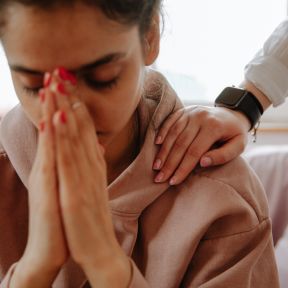LONELINESS- The Damage Caused by Loneliness and Social Isolation. Could loneliness lead to illness and death? Reviewed by Gary Drevitch

Humans are social animals. We need to be connected to other humans through friendships, companionships, and romantic relationships. A series of reviews have examined the relationship between loneliness and physical and mental health (Christiansen, et al., 2021; Hodgson, et al., 2020). Here’s what they’ve found:

There is little doubt that loneliness and lack of social connections can lead to depression and anxiety, but there is also good evidence that lonely people have poorer physical health. For example, people who have no friendships or poor-quality support relationships are more prone to premature death. Some of this may be due to stress, as those without social connections lack the support from friends and loved ones that help them to cope with stress-related illnesses. There is also some evidence that people who lack these supportive relationships are more prone to life-threatening heart attack and stroke – one reason why the American Heart Association has warned the public against the dangers of social isolation.
In fact, studies (e.g., Algoe, 2019) have found that when it comes to strategies that increase human lifespan, good interpersonal relationships are important, along with well-known healthful practices such as regular exercise, a healthy diet, avoidance of addictive substances, and good sleep patterns.
At a more “informal” level, our own research showed that first-year college students who established good social relationships with peers were less likely to drop out of college, and reported higher levels of satisfaction and engagement. In fact, it wasn’t enough for students to just focus on academic pursuits; they also needed to feel social connections to do well (Riggio et al., 1993).
Of course, lockdowns associated with the COVID-19 pandemic exacerbated feelings of loneliness and social isolation among many groups, particularly the elderly. There is some good news, however, as rates of loneliness, which had greatly increased during the COVID-19 pandemic lockdown, have since decreased.
The Key to Prevention
Developing and maintaining good social relationships are very important. So too is engaging in healthy habits – eating well, exercising, good sleep patterns, and avoiding harmful substances. Keeping in touch with family and friends is important—a good use for social media. Elders who are unfamiliar with social media or using smartphones to connect with relatives and friends can take classes offered by many senior centers. For young and old, joining groups for social activities, or hobbies is a good way to make connections. Exercise groups that are age-appropriate allow for both social connections and health promotion. There are also professional mentoring networks and mental health services that will pair up isolated individuals with a "friend" who can connect on a regular basis. Years ago, I participated in a "community friends" program that allowed me to mentor and assist a socially isolated person from the community.
- Questions and Answers
- Opinion
- Story/Motivational/Inspiring
- Technology
- Art
- Causes
- Crafts
- Dance
- Drinks
- Film/Movie
- Fitness
- Food
- Games
- Gardening
- Health
- Home
- Literature
- Music
- Networking
- Other
- Party
- Religion
- Shopping
- Sports
- Theater
- Wellness
- News
- Culture
- War machines and policy

